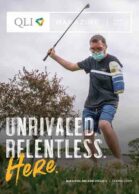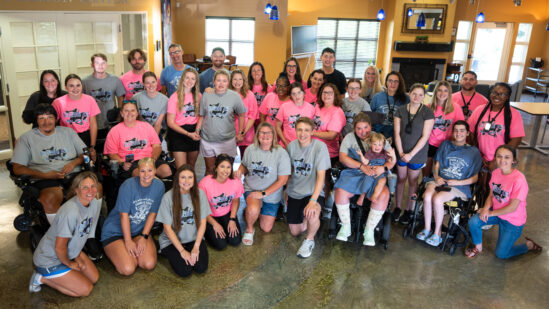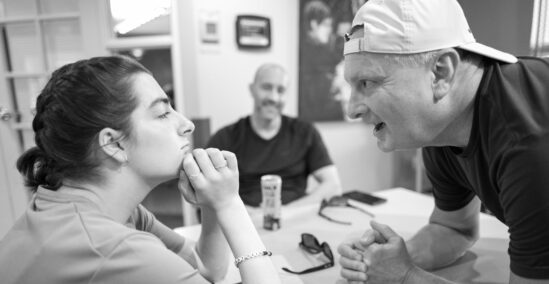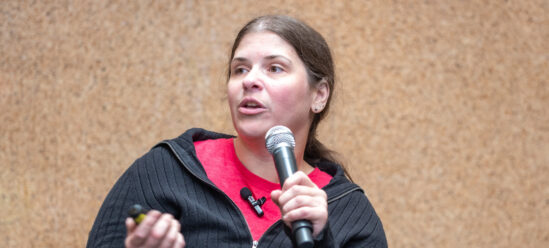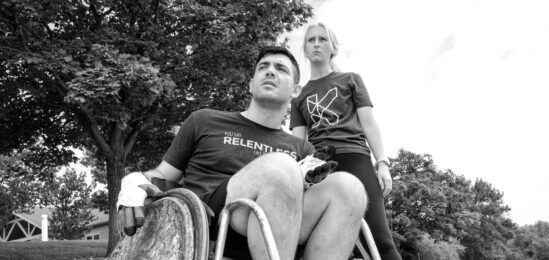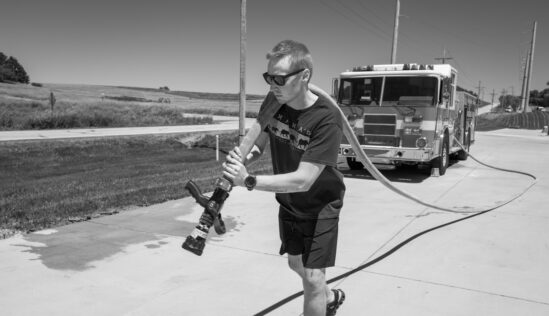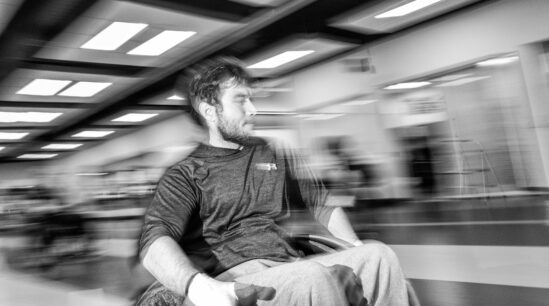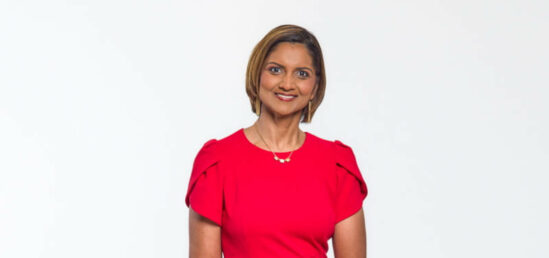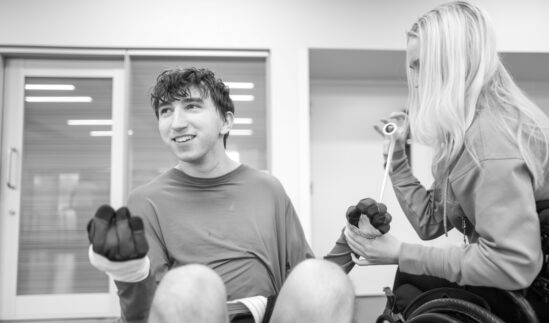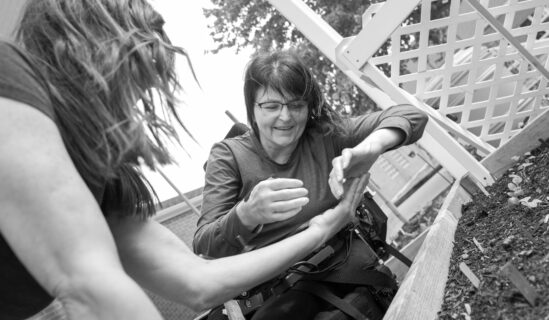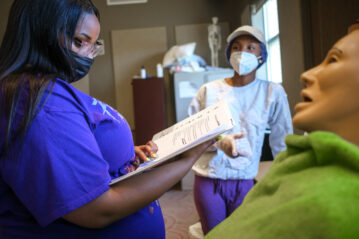 Today is Skill Check Day, one of many for the high school students participating in QLI’s Workforce Development program. Only a few short weeks remain before a State of Nebraska-proctored Certified Nursing Assistant exam. The exam will cement the students’ ability to serve in an intensive healthcare environment.
Today is Skill Check Day, one of many for the high school students participating in QLI’s Workforce Development program. Only a few short weeks remain before a State of Nebraska-proctored Certified Nursing Assistant exam. The exam will cement the students’ ability to serve in an intensive healthcare environment.
For that reason, every day of practice is precious.
Of the group of spring semester participants, only a handful can attend the afternoon session. Today, many are off-campus, back in class to finish what academic projects signpost the end of their high school careers.
Those present surf around the Lied Life Center auditorium, which has been retrofitted into a large-scale, modular training room. Here, hospital beds dot the walls. A life-sized, fully articulated clinical manikin lies beneath a set of bedsheets. Basic medical equipment—stethoscopes and blood pressure monitors—rests on nearby tables.
The students carry three-ring binders. The binders weigh heavily with laminated pages of information, study guides, and cheat sheets for more than 50 skills, including straightforward practices, like proper handwashing technique, and more advanced, multi-step processes. Range-of-motion stretches, for instance, or instructions that detail the steps to turn a bedridden patient to prevent potential skin layer wounds.
Over the next week, each student aims to successfully and independently perform every skill under the supervision of Melissa Elvig and Yuri Carrazco-Cortez, veterans of QLI’s specialized rehabilitation services and the lead instructors of the Workforce Development program. Students tally their completed skills on a spreadsheet list. An empty box next to each listed skill awaits instructor sign-off.
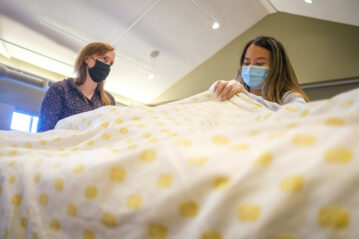
“This is all about repetition today,” Elvig says to a student who wears visible nerves. The young woman is moments from practicing catheter care on the supine manikin.
“We aren’t looking to get good enough to know how. We want to understand each skill thoroughly enough to know why.”
Indeed, the process of installing or removing a patient catheter is every bit as delicate as it is crucial. There is reason to be nervous. A patient’s well-being can depend on this small task.
But, in this room, with these instructors, the repetition is not meant to instill fear. It is meant to empower.
Elvig sees the opportunity—and seizes it.
She starts with a prompt, cueing the student to verbalize the appropriate steps in appropriate order. When to don gloves, when and how to utilize privacy sheets to protect the patient’s dignity, the best means by which to thread the tubing through a velcro loop that holds the cathing apparatus in place. For complicated maneuvers, Elvig steps forward from her watchful post, where she typically stands with clasped hands and interwoven fingers, to manually demonstrate techniques herself. Then she guides the student to mimic her strategy.
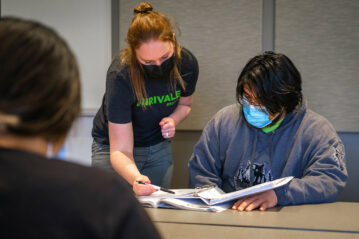 Both instructors have a sixth sense for identifying teachable moments, an ability to pause the action and intervene before a given student follows through with an error. It plays a critical role, hardening the good habits into concrete. Solidifying memory and recall into instinct.
Both instructors have a sixth sense for identifying teachable moments, an ability to pause the action and intervene before a given student follows through with an error. It plays a critical role, hardening the good habits into concrete. Solidifying memory and recall into instinct.
By this process, Elvig and Carrazco-Cortez build futures.
In 2019, QLI created its Workforce Development program to respond to a growing scarcity of formally trained frontline healthcare workers. Major medical institutions—including rehabilitation providers like QLI—faced an increasing struggle to seek out qualified job candidates who could also operate as flexible teammates and mentors.
Rather than take the workforce shortage at face value, QLI leadership examined the challenge as a chance to touch an untapped well of talent—Omaha’s population of socioeconomically underprivileged high school students.
It became clear that QLI’s Workforce Development program could meet twin objectives: cultivate dedicated, highly employable job candidates while simultaneously providing exciting new opportunities for young men and women looking to make a difference.
Perhaps, even, young men and women who had otherwise never enjoyed the chance to be a part of something greater.
It was also clear that guiding this population to success meant more than simply conferring onto students the skills and responsibilities of a CNA. The program would have to surround its participants with the very thing that made QLI unique:
Its culture of learning, interpersonal support, and growth.
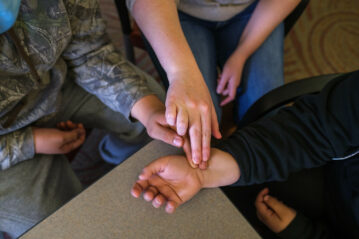 “As much as our program is invested in job performance,” Elvig says, “it’s more interested in making each student a great person to work with. We want them to become exceptional teammates, people who go beyond being coworkers. And we want them to carry tons of pride in the act of impacting lives.”
“As much as our program is invested in job performance,” Elvig says, “it’s more interested in making each student a great person to work with. We want them to become exceptional teammates, people who go beyond being coworkers. And we want them to carry tons of pride in the act of impacting lives.”
This balance was achieved by marrying personal mentoring to the program’s coursework and on-the-job training.
While large portions of the program orbited a heavy clinical curriculum, other resources served to round out each participant’s skills, whether functional or social. Mock interviews gave students the chance to navigate complicated hiring questions. Elvig and Corrazco-Cortez, alongside prominent mentors from QLI’s residential team—helped students grow accustomed to giving and receiving cordial, constructive feedback, while also encouraging students to ask candid questions about difficult workplace situations and managing collaborative conflict.
Even in the flow of Skill Check Day, the last checkpoint before the students’ final test, Elvig and Corrazco-Cortez gently mold the language the students use. As if to reinforce the idea that professionalism doesn’t always mean being a finished product as much as it means being willing to embrace your growth opportunities.
“It’s about giving them all the tools they’ll need to pave their own way,” Corrazco-Cortez says. “That goes beyond the clinical. It’s everything.”
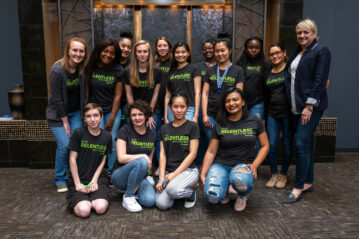 The QLI Workforce Development program will have served nearly 100 Omaha-area students by the end of 2021, each of them participating in either a three-month or eight-month internship at QLI. To date, every participant has successfully completed CNA training and has received an official Certified Nursing Assistant designation from the State of Nebraska.
The QLI Workforce Development program will have served nearly 100 Omaha-area students by the end of 2021, each of them participating in either a three-month or eight-month internship at QLI. To date, every participant has successfully completed CNA training and has received an official Certified Nursing Assistant designation from the State of Nebraska.
After graduating, many program participants become model employees within QLI. Others find gainful employment in medical systems across the Omaha-area and beyond.
Some, like program graduate Ame Kanley, use the training as a foundation for broader horizons.
Kanley, now a sophomore at Nebraska Wesleyan, had an eye for healthcare even before her time at QLI. But she recognized the value in using the program to gain skills ahead of her college education.
“I always knew to some extent what I wanted to do,” Kanley says, “but being involved at QLI helped open a lot of those paths to me.”
One of the first participants in the Workforce Development program, Kanley dedicated the final semester of her high school career to training under Elvig and Corrazco-Cortez’s supervision. Beyond state-commissioned bookwork and hands-on skills practice, Kanley shadowed QLI’s residential teams for a week of live shifts, lending help in actual rehabilitation programs.
“I remember being extremely scared working with real patients,” Kanley says. “Especially one with a brain or spinal cord injury. If you haven’t worked with that population before, it can be pretty nerve racking.
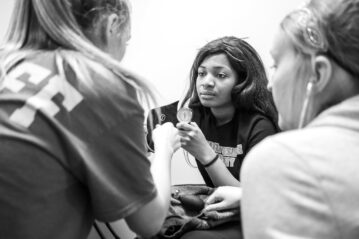 I was working on skills with a specific patient—bed cares, I think. And I remember being so nervous and so scared that I had no idea what to say. A team member pulled me aside and coached me through what I needed to do to make a connection with the person. Not just how to do the cares, but how to actually build a relationship with the person in the room. It was one of those experiences you don’t have in the classroom, those moments where you realize these are real people—not just disabilities or injuries or things you need to do on a checklist. You can talk with them, have a real conversation with them.”
I was working on skills with a specific patient—bed cares, I think. And I remember being so nervous and so scared that I had no idea what to say. A team member pulled me aside and coached me through what I needed to do to make a connection with the person. Not just how to do the cares, but how to actually build a relationship with the person in the room. It was one of those experiences you don’t have in the classroom, those moments where you realize these are real people—not just disabilities or injuries or things you need to do on a checklist. You can talk with them, have a real conversation with them.”
She adds, “It puts the importance of the job into perspective, basically. It’s motivation to do what we do.”
Kanley credits the experience as a formative moment in her learning, something that would go on to shape the way she has carried herself in healthcare environments from that point forward. Today, Kanley is in the process of earning a nursing degree. She aspires to become a NICU nurse practitioner.
It’s this intersection, the crossroad between expertise and empathy, whose importance cannot be overstated.
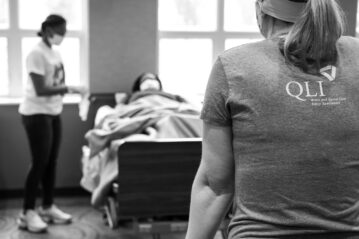 Here, in a true-to-life, dynamic healthcare environment, the Workforce Development program does more than codify skills or help trainees pass tests. It reveals purpose, as though purpose itself were a self-sustaining energy source hidden just beneath the surface.
Here, in a true-to-life, dynamic healthcare environment, the Workforce Development program does more than codify skills or help trainees pass tests. It reveals purpose, as though purpose itself were a self-sustaining energy source hidden just beneath the surface.
On Skill Check Day, this spark gets the limelight. When Elvig or Corrazco-Cortez guide a student toward success—first with prompting cues, then with an ever-so-slightly remove, and then, finally, without any assistance at all—the joy of accomplishment is undeniable.
“You’ve got this,” Elvig says to the student completing the catheter care check. “If you slow down your pace, you’ll have it down.”
There’s a tremendous amount of detail and precision to what outwardly seems to be the simplest of tasks. Between trial runs, instructor and student talk through those details. They remind one another of helpful mnemonic devices, share passing insecurities, and reflect on repeated encouragement.
In this way, the learning process serves as a quaint reminder that all healthcare workers share a common experience, some likewise bond over the desire to do right, to create a greater good.
After a beat, the student tries again.
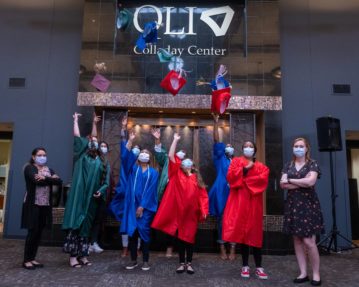 This time, it’s a success. She verbalizes the complex steps in order, just as she performs them. It’s a perfect pass. And despite wearing a protective surgical mask, Elvig’s eyes give away the big smile she wears while initialing the student’s spreadsheet.
This time, it’s a success. She verbalizes the complex steps in order, just as she performs them. It’s a perfect pass. And despite wearing a protective surgical mask, Elvig’s eyes give away the big smile she wears while initialing the student’s spreadsheet.
The excitement in the auditorium for a moment like this is difficult to resist. It feels a bit like hope, present in physical form, some signal of potential without ceiling and without limits.
Hope that this will, indeed, make a difference.
Hope that this will define a future.



